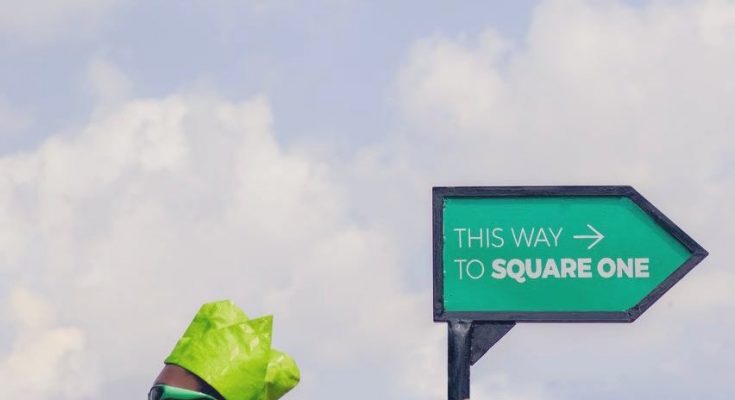By: Covenant Odedele
I am a huge fan of nonsense. Especially in a time where a great deal of sense is bound to be seen in every little bit of nonsense. And the nonsense, in this case, are internet memes.
Usually, I may be too quick to criticize some things about the internet, and as a result, I give remarks, rebutting some activities that go on the media. But then, memes are an exception for me. They are obviously relevant and their importance goes way more profound than the shallow perception of our value for them. The fast-rising integration of social media and internet culture into everyday life transforms memes from online humour into what has shaped culture and the way we see things. In Nigeria where there is a possibility of bad news at every turn, memes are a comic relief covering different genres and mediums, hence, a coping mechanism. And even, memes can provide a detailed look into the lives and mindsets of their targeted generation. Of course, not all memes are funny, many are mean and offensive; unreasonable and unacceptable, but the concept of a meme transcends the limits we think of.
The term “meme” is defined as a unit of cultural transmission. From the Greek word “mimema”, meaning “imitated”, memes are contingent on imitating relevant cultural patterns. They are considered to be cultural genes — they have heredity, undergo replication, and require fitness to survive. They are patterns of behaviour that are passed from community to community and sooner than later, evolve to be a trend, then a culture. And for Gen Z Nigerians in particular, these humourous memes perfectly encapsulate our everyday experiences and are helping to create our own unique pop culture.
There are many important factors that account for the reason why memes go as far as competing with hashtags in their virality. Memes are simple, succinct and explicit in their messages. Also, the accessibility and ability to reach a huge audience within minutes show their effectiveness in the transmission of info quickly. In Nigeria, memes are expressions of people’s opinions and emotions and are mostly created by appropriating scenes from TV shows, movies and also happenings in the society, then remixed with a more recent happening to form new meanings in a funny and relatable manner. Memes cross language barriers and create a sense of belonging among certain internet users. They help people find or form cliques, and this ability to be shared with millions online instantly promotes a certain way of thinking within our culture. They are unarguably tools used to vent feelings over certain socio-political issues or to reinforce obsessions with prominent celebrities. Memes serve as easy and funny ways for teenagers to communicate with their friends, and Nigerian memes are the most modern of this modern trend.
The most contagious and of course, trending memes allow us to feel and relate to our experiences; ourselves and others. You will find a couple of memes addressing different realities as determined by the creator: workplace issues, campus culture, parent-children conflicts, and relationship problems among others and the eventual images are so funny that we won’t forget to laugh at them even when there is a reasonable distance between us and them. They can be so refreshing because they remind us to take ourselves (or some parts of our lives) less seriously, at least sometimes. In conversations; both in DMs and groups, a meme or its ‘younger sibling’, a WhatsApp sticker, spice up the chats. Let us talk about the ones that readily come to mind: the images of Pepe the frog superimposed on different torsos, the unlimited comical expressions of the Nollywood star, Osita Iheme aka Pawpaw, Sabinus, Layi Wasabi and others — an unbroken continuum of laughter.
The ease of creation and multiplication of these memes and the ability to constantly reaffirm ideas have become an adroit tool allowing for mass influence across borders. And due to the ceaseless daily creation of memes, no exact number of internet memes in circulation at a given time is possible. These aids in the anonymity of the source of memes hereby spreading its reach with no worry about copyright, also making them a generally authorless product; freeing their audiences from the shackles of authorial expectation. So, those who share or remix internet memes are not held to a standard or a limitation of the author who created it. Another unique factor about internet memes is that the meaning lies not in the mind or stances of the meme creator, but that of its destination, the meme consumer. Such that, the impression depends on the minds of the audience that generate their own meanings and understanding of the meme. Also, we cannot ignore the fact that some people make money from memes. Businesses, brands and even media channels incorporate memes into their content across social networks, and this helps generate the needed traction. Also, copyright and ownership may be an answer to how meme creators make money. Even though in most cases, brands use memes for profit while the original creator doesn’t benefit at all, there are exceptions, and the Sabinus-Gala readily comes to mind.
There is no denying that memes are important in our arsenal of digital persuasion and have revolutionised the way we communicate. And I say this boldly, they are valid expressions of the creativity and originality of the average Nigerian youth on Twitter and Tiktok with a huge following as a reward for the creators. Perhaps at the end of the day, we can say they are nothing more than a fun example of people using humour as a way of coping with all the tragedies and misery that life (maybe in Nigeria) can offer. Sometimes, memes can be a disadvantage as they are seen as a replacement for conversations that should be had. They can be easily misunderstood and seen as irrelevant by people who don’t use them. However, we cannot overlook how powerful they are as a medium of communication. They remind us to embrace that informal part of our lives, to accept ourselves; organically human and imperfect as we are, to laugh a little. Of course, there are sides of us that are less than brag-worthy, but there is no need to deny them. When we laugh at these illustrations of creativity, it numbs our pains and takes away the slightest worry. Then, there is no sense that is more sensible than this nonsense.




